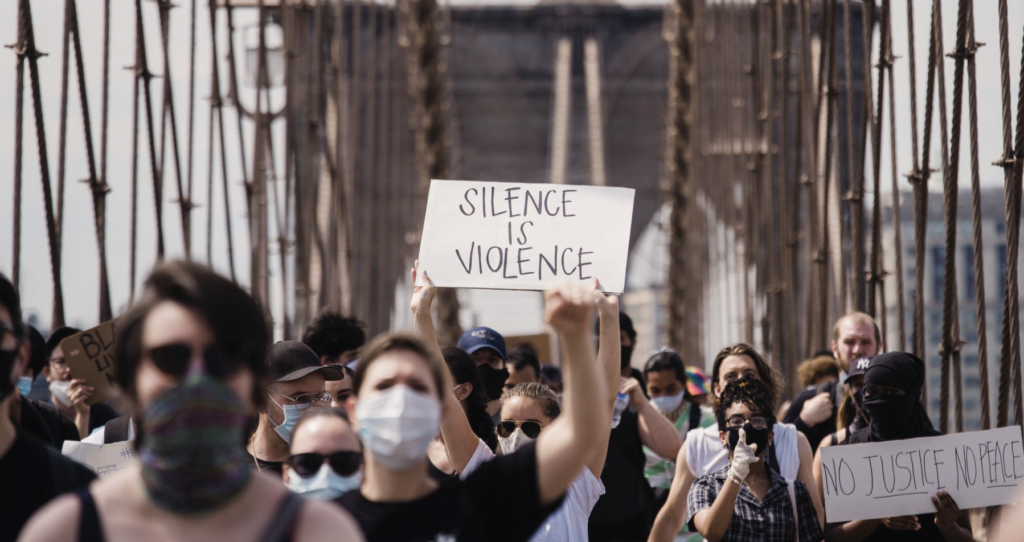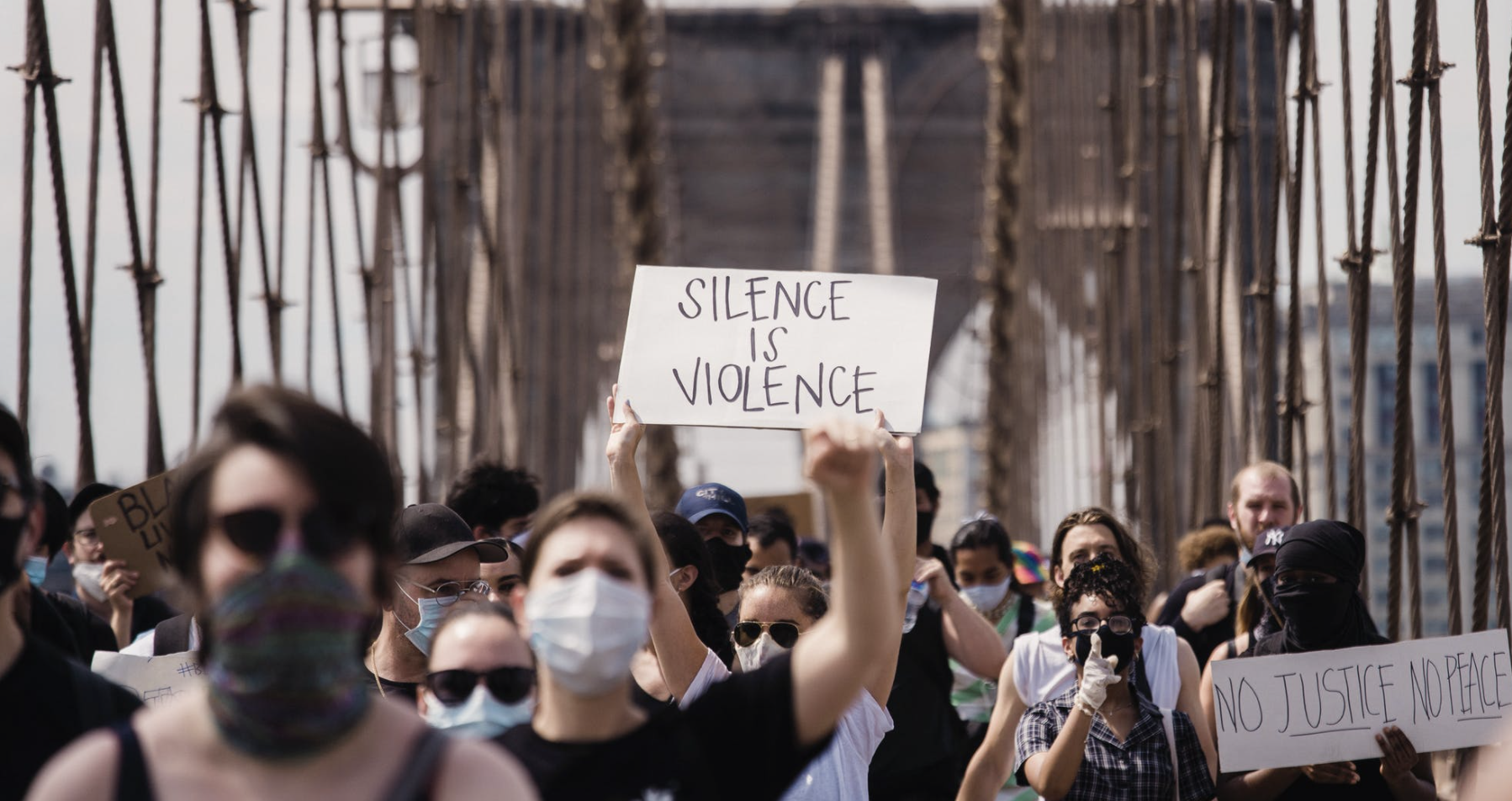
This is a sermon that I preached on Sunday, 6/14/20, at Berkeley Friends Church (via videoconference). The scripture readings for this sermon were: Luke 11:37-54. You can listen to the audio, or keeping scrolling to read my manuscript. (The spoken sermon differs from the written text)
Listen to the Sermon Now
Good morning, nice people.
I like nice people. I like people who make me feel welcome, heard, respected. I like people who are polite. People who show courtesy. They might even be nice enough to laugh at my jokes. That would be nice.
It’s nice to be nice.
But Jesus wasn’t nice. He was courageous and compassionate. He was loving and strong. But nice? Not really.
In our reading this morning, Jesus gets invited to the house of a local religious leader. A pious man. A wealthy man. A man well-respected in the community. The kind of man who would host a visiting Rabbi in his home.
Jesus isn’t nice to this man at all. In fact, he is downright rude to his host.
It all starts with not washing his hands before dinner.
Now, in our culture, we understand hand-washing as a hygienic practice. It’s about avoiding the spread of disease. And now in the age of COVID, it’s more important than ever that we practice hand-washing. To wash our hands regularly is an act of compassion, both for ourselves and the people around us.
But to understand our reading this morning, we need to lay aside our culture’s relationship with hand-washing, and step into the ancient near-Eastern culture that Jesus and his countrymen inhabited. This was a pre-scientific culture. They didn’t know about germs. So why did the Pharisees consider it so important to wash hands before dinner? Why was it so offensive that Jesus didn’t do it?
For us, washing hands is more of a public health concern than a matter of politeness. But I think that there are aspects of our culture that feel closer to the ancient near-Eastern practice of hand-washing. It’s a practice tied to ideas of inside and outside, clean and unclean, common and sacred. It’s about marking boundaries and showing respect.
When we moved to California last year, we noticed that there are lots of little cultural differences between Washington, DC and the Bay Area. One of the things we noticed was that many folks out here have the tradition of removing shoes before entering the house. It’s a nice way to keep the inside of the house clean, and it symbolizes a movement from the rough and tumble of the outside world to the protected, inside world of the home. Since moving here, our family has also adopted this practice. It feels nice.
So now I’m imagining that Jesus comes to visit our family for a dinner party. When he comes in, he knows that it’s expected for him to remove his shoes at the entryway. To wear his dusty shoes into our house, to possibly get dirt and mud on our carpet – that’d be a little gross. And honestly, it would be disrespectful of us as his hosts.
That’s exactly what Jesus does to the prominent local leader who has invited him to dinner. It says that “the Pharisee was amazed to see that he did not wash first before dinner.” The word “wash” here is the same Greek word for “baptize” – it was a ritual washing that pious Jews practiced before eating. It marked the boundary between the dirt and grime – the uncleanness – of the outside world and the protected – clean – space of the home.
By not washing his hands, Jesus was ritually defiling this man’s home and dinner table! Kind of like refusing to take off your shoes in the home of a family where it’s expected to leave shoes at the door. He was tracking mud onto this man’s carpet.
Why would Jesus do this? Certainly it’s worth the effort to be polite to your host, isn’t it? Why would Jesus choose to give offense in this way?
We know from other stories that Jesus knew how to negotiate social situations in ways that were courteous. He both received and provided hospitality all the time. Think of the woman at the well, or the way Jesus fed his disciples with fish on the beach after the resurrection.
Jesus was socially aware. He was perfectly capable of being courteous and following the rules of hospitality if it was appropriate to the situation. So why did Jesus decide that now was a time to be inappropriate?
It seems clear from the reading that Jesus did not violate the rules of cleanliness by accident, or because he was just feeling cranky that day. Jesus broke what was ultimately a minor social custom in order to make a larger point about the character of the social order his host was participating in.
“Woe to you Pharisees!” he said. “You follow all the little rules. You wash your hands before dinner. You even tithe from your spice rack, to make sure you’re not doing anything improper. But your hearts are full of arrogance and hatred! You are unmarked graves that people walk over without realizing it!”
And when one of the other guests at the dinner – a religious scholar – pointed out, “Hey Jesus, chill out – you’re not being very nice,” Jesus doubled down: “Woe to you, too, bro! Your legalistic religion loads people with burdens that you aren’t willing to bear yourself. Sucks to be you! You build monuments to the prophets, but it’s your ancestors who killed them.
What’s more, you still live in the spirit of your ancestors – the spirit of violence, and oppression, and resistance to the truth. You enforce to the small rules while violating the most important commandments of God. You religious scholars are supposed to be making the knowledge of God available to everyone, but you’ve not only refused to receive this knowledge for yourself, you’re preventing others from going there.”
Jesus really is not very nice here. He can’t be. Because these are such nice people, such courteous, rule-abiding people, that nothing but the unvarnished, offensive truth can break through the pleasantries. These are such respectable folks, they’ve convinced themselves that their hatred and arrogance is holy. In their deception of those around them, they’ve deceived themselves most of all.
And it gets me to wondering: How would Jesus speak to us? How would he address my friends and family if we had him over for dinner? Would he charge us with the blood of all the prophets shed since the foundation of the world? Would he charge us with the blood of the prophets that is being shed even now in June of 2020?
Who are the prophets? The prophets are those people who hear and proclaim the words of God. They are people who speak the truth, even when it results in a violent response from the powerful.
And the truth usually does elicit that kind of response. We’ve been seeing it in streets across America. Hundreds of thousands of protestors have taken to the thoroughfares of our cities to proclaim that black lives matter. They’ve broken the little rules of traffic ordinances. They’ve tracked mud into our house to get our attention. They’ve been very impolite, very loud. Because they had to be.
Politeness and propriety has failed to get the attention of the wealthy and white populations of this country that routinely benefit from police violence. The niceness of white moderates has cost countless lives. We can’t afford to be nice anymore.
We need to hear that violence and murder by the police is a daily occurrence that can no longer be tolerated. We must see the blood of the prophets, shed on the roads and on the sidewalks. We must witness the blood of the prophets who are being shot with rubber bullets, choked with chemical agents, and beaten with batons.
We must witness these things and ask ourselves: Who are we with?
Are we with the Pharisees, who follow all the little rules of niceness and cleanliness, while the prophets are being murdered? Are we the religious scholars who preach a gospel of rules and purity, while not living up to the deeper spirit of our creed? Are we those who celebrate and share quotations from Martin Luther King, while embodying the moderate white liberalism that undermined his ministry at every turn?
Following the example of Jesus, we must learn that sometimes propriety and niceness is a form of structural violence. The gospel of Jesus Christ will not be confined by the contours of propriety and good order. The kingdom of God will not be televised, and it will not take off its shoes at the front door.
It is not enough for us to be “good”, “respectable” people. We are called to be the prophets, the apostles, sent by God to deliver the good news of liberation and reconciliation that this bleeding world so desperately needs. And like all prophets, we may be called to suffer in this proclamation. Like our chief prophet, Jesus, we may be called to bleed for our convictions.
What would that look like? What does it feel like to be so liberated from complacency, hedged bets, conflict avoidance, and respectability, that we completely engage in God’s prophetic work of transformation?
We’ve gotten very good at cleaning the outside of the cup. But how often are we still full of greed and wickedness inside? How often are we submissive to the authorities of this world rather than to the kingdom of our God?
What would it mean for us to do as Jesus commands and “give for alms those things that are within”? What is within us? What is the darkness within us that must be redeemed? What must we surrender? How will our lives and community be transformed when God makes everything – even disruption and conflict – clean for us?
This morning, Jesus issues us a challenge: Will we be unmarked graves, or will we face down the power of death? Will we cower in fear while the blood of the prophets is shed in broad daylight, or will we risk the life and power that comes from Jesus? Will we be voices crying in the wilderness, “prepare the way of the Lord! Make his paths straight!”
That would be nice.
